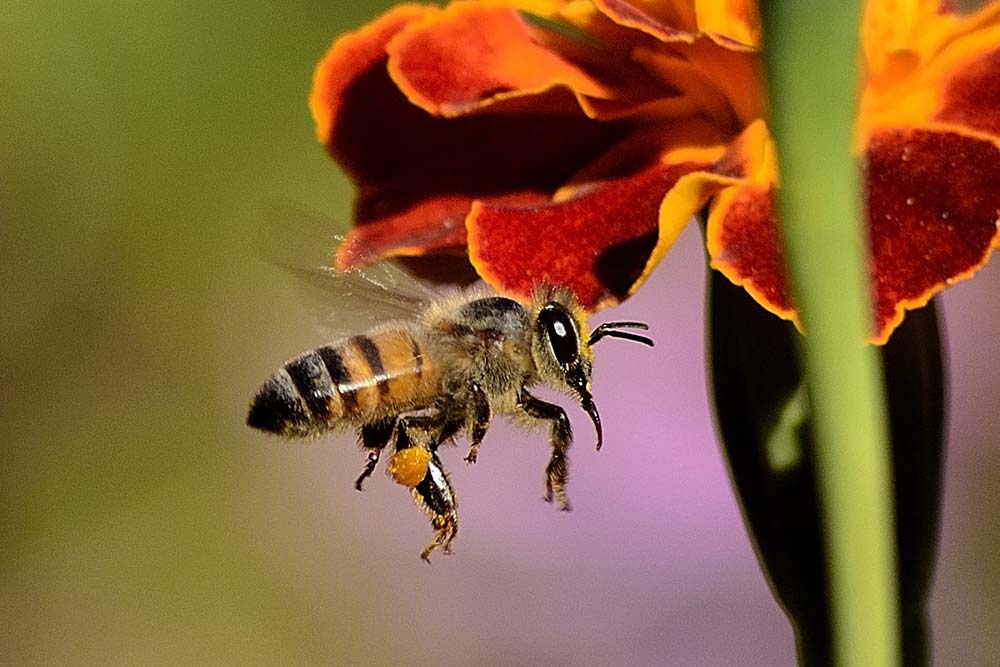
Why do Bees Sting?
No one likes to get stung by a bee, especially pets! That said, have you ever wondered why bees sting? It’s not because they just feel like doing it or are in a bad mood.
To the contrary, honey bees are considered to be quite docile and don’t sting humans or animals unless it is to defend against a threat to themselves or their nest. Of course, Africanized bees are a more aggressive species that have been known to chase their perceived threat for a quarter of a mile or more.
2 Reasons Why Bees May Sting You
There are two common reasons why bees will sting a person or animal.
The Bees Feel Threatened
If a bee perceives a threat, it uses its ability to sting and inject venom, as a means of self defense. So, for example, if you were to “swat” them away from your outdoor barbecue, or accidentally step on the ground very near to them, this will likely result in the bee attempting to sting you.
You are too close to their Nest
A nest is the bee colony’s home. That’s where they store food and where their brood (eggs, larvae and pupae) reside along with the Queen. So, you must know that bees will staunchly defend their nest against any perceived threat. And the best way for bees to ward off any threats would be to sting the person or animal that gets too close.
When do Bees Stings Occur?
Bees are more active during the warmer months while they are foraging and raising their brood. Therefore, you can expect bees to sting people and animals during the warmer months of greater activity.
Do all Bees Sting?
Short answer, no. All female bees, including the queen, have the ability to sting, although, it is quite unusual for a queen to sting a human or other animal. Rather, a queen would instead sting a rival queen. That said, male bees (drones) do not have a stinger and therefore, do not have the ability to “sting”. Drones also do not gather pollen or nectar, Instead, a drone’s sole purpose is to mate with a queen.